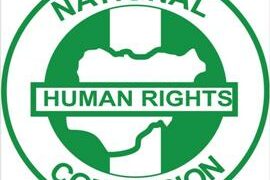The Nigerian government has commenced multi-sectoral arrangements for the repatriation, settlement and empowerment of over 100,000 Nigerian refugees scattered in neighbouring countries, including Cameroon, Niger and Chad.
This is as the government says it’s preparing for the possible deportation of some Nigerians in the United States under President Trump’s deportation threat to rid the country of illegal immigrants.
Federal commissioner for the National Commission for Refugees, Migrants and Internally Displaced Persons (NCFRMI) Tijjani Aliyu said the federal government is putting machinery in motion to absorb and resettle the prospective deportees that would be affected by what he described as a mere policy statement by the Trump administration. “We are going to match his statement with action,” Mr Aliyu stated Tuesday in Abuja.
He also said the government would now leverage its position as the chair of the Rabat Process, a key Euro-African dialogue on migration and development, to push for softening some of the stringent international immigration laws mainly tilted against Nigeria and other African countries. He believes the position will help Nigeria advance more reasons for global action against climate-induced mobility, insecurity, education, and other factors that force Nigerians to become refugees or seek greener pastures in other countries.
Nigeria’s accession to the leadership role was formalised at the senior officials meeting of the Rabat Process, held on 29–30 January 2025 in Porto, Portugal.
Rabat Process brings together 57 partner countries, the European Union, the Economic Community of West African States (ECOWAS), and several international organisations. It serves as a framework for cooperation on migration governance, focusing on areas such as regular pathways, irregular migration, migration and development, and international protection.
“Nigeria’s leadership marks a significant milestone, reinforcing its role as a key stakeholder in global migration governance,” Tijani stated during the press conference yesterday. “Nigeria has positioned itself as a leading voice on migration issues, making its chairmanship of the Rabat Process a natural progression in its leadership in migration governance.”
He also disclosed that the refugee commission had built eight resettlement cities in some northern states to resettle the refugees abroad. Over 6.1 million internally displaced persons are currently taking shelter in 136 camps. The cities can accommodate 40 households, with about 200 persons expected to be in each camp.
Before the official handover, the federal commissioner of NCFRMI unveiled Nigeria’s priority areas for its tenure, outlining a comprehensive agenda to foster sustainable and well-managed migration.
Some of the issues he wants the global organisation to address include youth and innovation, facilitating pathways for regular migration, improving migration data management, promoting human rights and dignity, addressing the challenges posed by climate change on migration patterns, combating human trafficking, and reimagining reintegration.
Mr Tijani said Nigeria’s assumption of this leadership role underscores its growing influence in international migration governance. “As chair, Nigeria will drive the strategic direction of the Rabat Process, ensuring that migration policies and frameworks reflect the realities and priorities of African and European partner countries,” he told reporters.
We’ve got the edge. Get real-time reports, breaking scoops, and exclusive angles delivered straight to your phone. Don’t settle for stale news. Join LEADERSHIP NEWS on WhatsApp for 24/7 updates →
Join Our WhatsApp Channel










